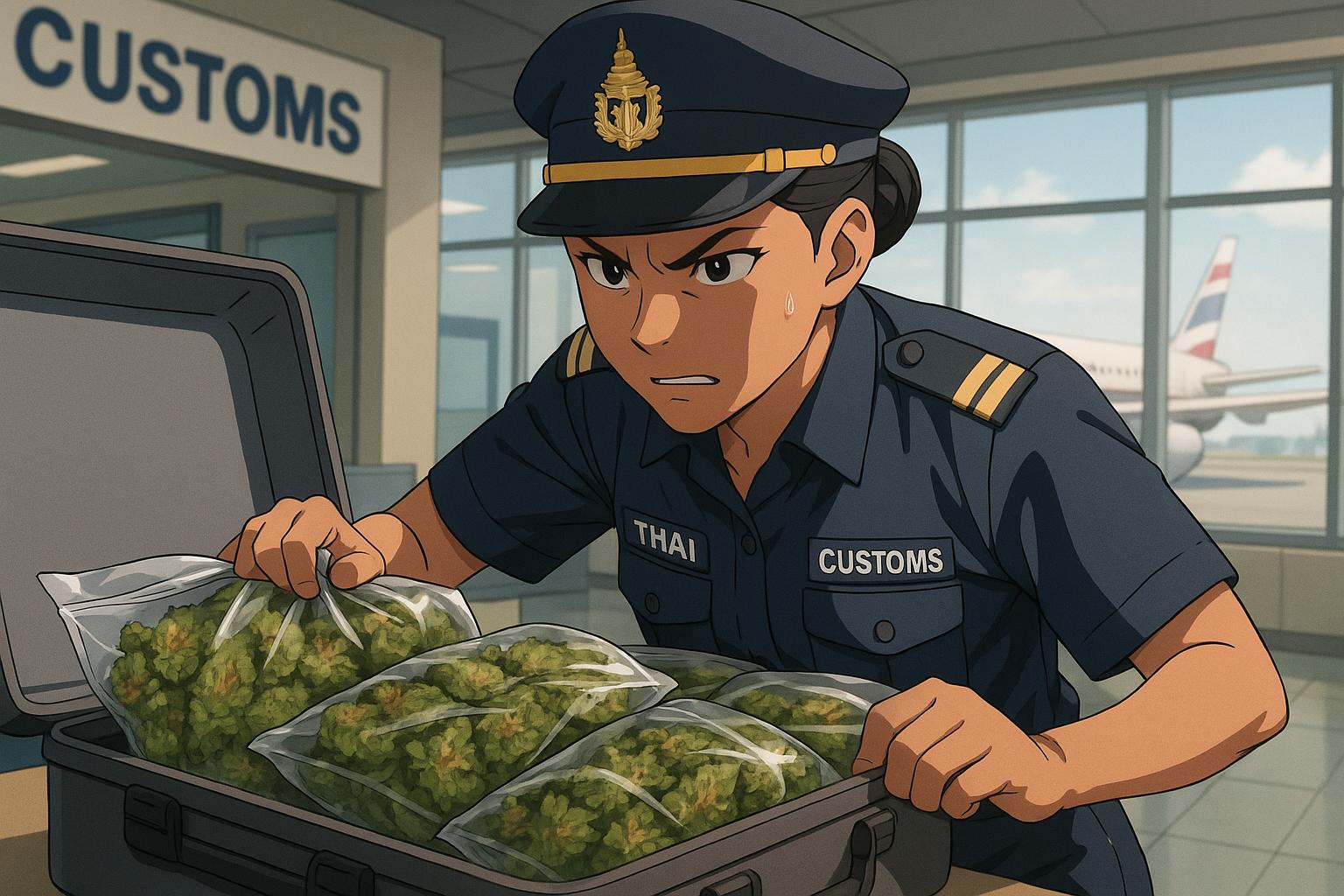Officials in Thailand are intensifying efforts to combat cannabis smuggling as reports of tourists attempting to illicitly transport the drug out of the country have surged. This initiative comes in the wake of recent arrests involving predominantly British and Indian nationals, highlighting the challenges faced by Thai authorities in regulating this burgeoning industry.
Since Thailand decriminalised cannabis in 2022, the country has seen a dual-edged impact on its economy. Initially celebrated for its potential to enhance tourism and agricultural prospects, the rapid increase in cannabis-related activities has raised serious concerns. Reports indicate that the UK government collaborated with Thai officials earlier this year, resulting in the seizure of over two tons of cannabis from air passengers, while more than 50 British individuals have been apprehended for similar offences since July 2024. Notably, two British women were arrested in both Georgia and Sri Lanka for attempted smuggling after travelling from Thailand, underlining the international scope of the issue.
Thailand’s Health Minister, Somsak Thepsutin, has voiced the government's commitment to tightening regulations surrounding cannabis sales. He announced plans to implement new rules that will require customers to present prescriptions for cannabis purchases, aiming to mitigate the vastly unregulated market that critics argue has made the substance easily accessible to children and contributed to rising addiction rates. This comes as the ruling Pheu Thai Party faces mounting public pressure to reverse the decriminalisation decision, a stance that has met with fierce opposition from coalition partners who advocate for continued legalisation.
In addition to increasing regulation, officials have boosted inspection protocols at airports to intercept smuggling attempts. A recent series of seizures in March, where authorities confiscated a staggering 375 kilograms of cannabis from 22 suitcases at Samui International Airport, exemplified the scale of operations being undertaken by traffickers. Investigations revealed that many arrested tourists were recruited under the guise of enjoying complimentary holidays in Thailand; upon arrival, they were tasked with transporting cannabis to destinations like Singapore, with the promise of payment upon delivery to the UK.
Thai police have noted the alarming sophistication of these smuggling operations, which exploit foreign nationals as unwitting drug mules. The cannabis seized at Samui Airport was intended for various markets, including the UK and Germany, and could have commanded around 75 million baht on the black market.
As Thailand navigates the complex interplay between cannabis regulatory frameworks and public health concerns, the future of its cannabis policy remains uncertain. Authorities are battling not only the practicalities of enforcement but also the political ramifications of potentially retracting a progressive stance that initially aimed to position Thailand as a leader in cannabis reform within Asia. This precarious situation underscores the intricate balance the nation must strike between economic opportunity and societal welfare in an evolving landscape.
Source: Noah Wire Services
